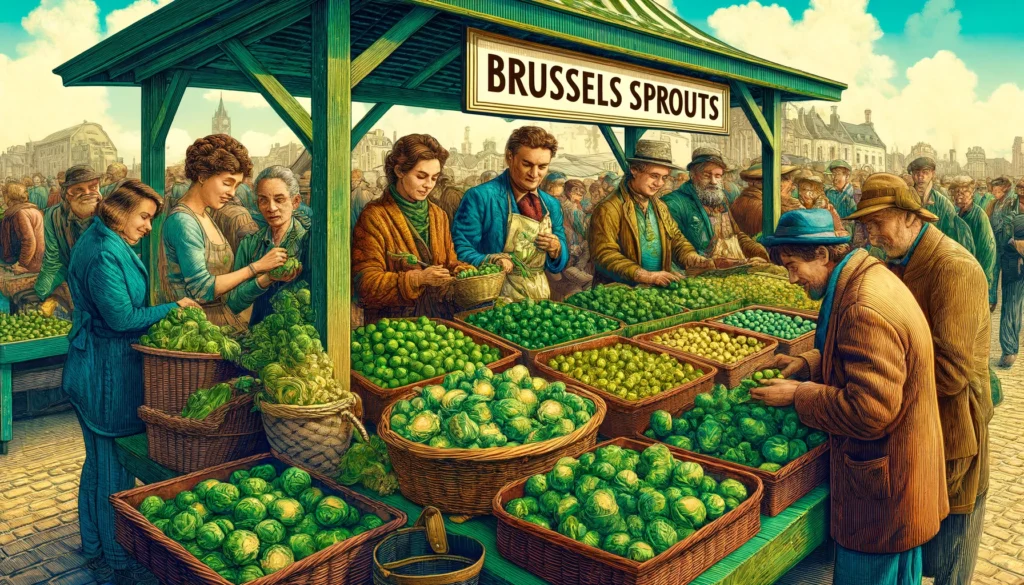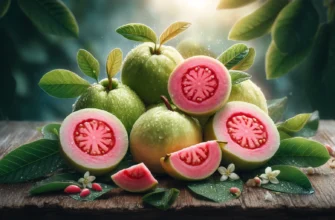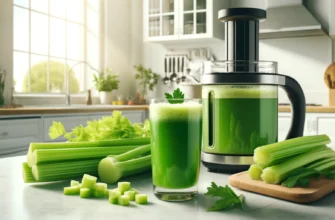Brussels sprouts often find themselves the butt of the vegetable world’s jokes, unfairly maligned as the stink bombs of Sunday dinners past. They linger in our memories as the leafy green ogres lurking on our plates, waiting to be hidden under a napkin. However, let’s give these little lads their due diligence. Armed with more superpowers than a comic book convention and the philosophical depth of a Plato dialogue – about circles, forms, and yes, the ideal sprout – Brussels sprouts offer a complex character study in resilience and redemption. As Nietzsche could have mused over his steamed veggies, “That which does not taste good at first, may indeed be worth a second bite.”

- 10 Benefits of Brussels Sprouts
- A Cornucopia of Nutrients
- Guardians of Winter Health
- Digestive Champions
- Mighty Antioxidants on Patrol
- Heart Health Heroes
- Sugar Level Sergeants
- Architects of Bone Integrity
- Protectors of Cellular Fortitude
- Visionary Vegetables
- Detoxifying Dynamos
- Summary: Celebrating the Green Giants
- FAQ: The Curious Case of Brussels Sprouts
- What do Brussels sprouts do for your body?
- Is it good to eat Brussels sprouts every day?
- Is it better to eat Brussels sprouts raw or cooked?
10 Benefits of Brussels Sprouts
A Cornucopia of Nutrients
Each Brussels sprout is a powerhouse, a veritable veggie vault filled with vitamins A, C, and K, alongside folate, manganese, fiber, and even a whisper of protein. It’s as if Mother Nature looked at the humble sprout and said, “Let’s make this one for the multivitamin commercial.”
Guardians of Winter Health
These sprouts don’t mess around when flu season rolls in. Rich in vitamin C, they arm your immune system like tiny, edible sentinels, ready to ward off the sniffles and sneezes that come knocking.
Digestive Champions
The fiber content in Brussels sprouts makes them the stand-up comedians of the colon: they keep things light, moving, and prevent your digestive tract from bombing on stage. In the realm of gut health, they perform encore after encore to rave reviews.
Mighty Antioxidants on Patrol
Brussels sprouts come packed with antioxidants, especially kaempferol, which combats inflammation and oxidative stress like a medieval knight banishing foes from the kingdom of your body.
Heart Health Heroes
These green warriors help fight the good fight against heart disease by managing cholesterol levels. Their high fiber content works like a janitor for your blood vessels, sweeping away unwanted cholesterol and keeping your cardiovascular system as clean as a whistle.
Sugar Level Sergeants
For those managing diabetes or trying to stabilize blood sugar, Brussels sprouts are invaluable allies. Their ability to moderate glucose absorption makes them essential on the front lines of dietary defense.
Architects of Bone Integrity
With their impressive stores of Vitamin K, Brussels sprouts help construct and fortify your skeletal structure, ensuring your bones are robust enough to withstand whatever life throws at them.
Protectors of Cellular Fortitude
By shielding DNA from oxidative damage and mutation, Brussels sprouts support cellular health, reducing the risk of chronic diseases and ensuring your body’s blueprints remain pristine.
Visionary Vegetables
Rich in beta-carotene, which converts to vitamin A in the body, Brussels sprouts are like nature’s own version of night vision goggles, enhancing your sight and keeping your eyes sharp.
Detoxifying Dynamos
Their high levels of glucosinolates help activate the body’s detox pathways, clearing out the detritus of poor dietary choices and environmental toxins, much like a veggie vacuum cleaner.
Summary: Celebrating the Green Giants
Brussels sprouts are the understated celebrities of the vegetable aisle, deserving of a standing ovation rather than disdain. They pack a nutritional punch that can boost your health, protect your body, and even enhance your meals with their complex, nutty flavor when cooked correctly. They challenge us to rethink our biases, to give them a second chance on our plates and in our hearts. Perhaps George Carlin would have quipped, “Brussels sprouts: the only vegetable that can start a dinner debate and end it by clearing the room – literally and figuratively!” Let’s give these little green giants the respect they deserve and maybe, just maybe, save them from the fate of being the punchline of the vegetable world.
FAQ: The Curious Case of Brussels Sprouts
What do Brussels sprouts do for your body?
Brussels sprouts are like little green superheroes for your health. Packed with vitamins C and K, fiber, and antioxidants, these tiny cabbages help fight inflammation, support heart health, and boost your immune system. Think of them as your body’s personal little shield against the slings and arrows of outrageous fortunes – or at least against modern life’s less-than-stellar dietary choices.
Is it good to eat Brussels sprouts every day?
Absolutely, if you’re a fan! Eating Brussels sprouts daily can be a great way to load up on essential nutrients and fiber. However, moderation is the spice of life (and diet). Brussels sprouts, like their cruciferous cousins, contain compounds that can affect thyroid function in sensitive individuals if consumed in very high quantities. So, while daily consumption is generally fine, it’s a good idea to keep your diet varied.
Is it better to eat Brussels sprouts raw or cooked?
Raw or cooked, Brussels sprouts bring their A-game to your plate. Eating them raw in slaws or salads preserves their crisp texture and maximizes their glucosinolates – a compound noted for its cancer-preventive properties. Cooking them, on the other hand, makes them easier to digest and can enhance their sweet, nutty flavors. Roasting or sautéing especially brings out a caramelized charm that could win over even the staunchest sprout skeptics!







